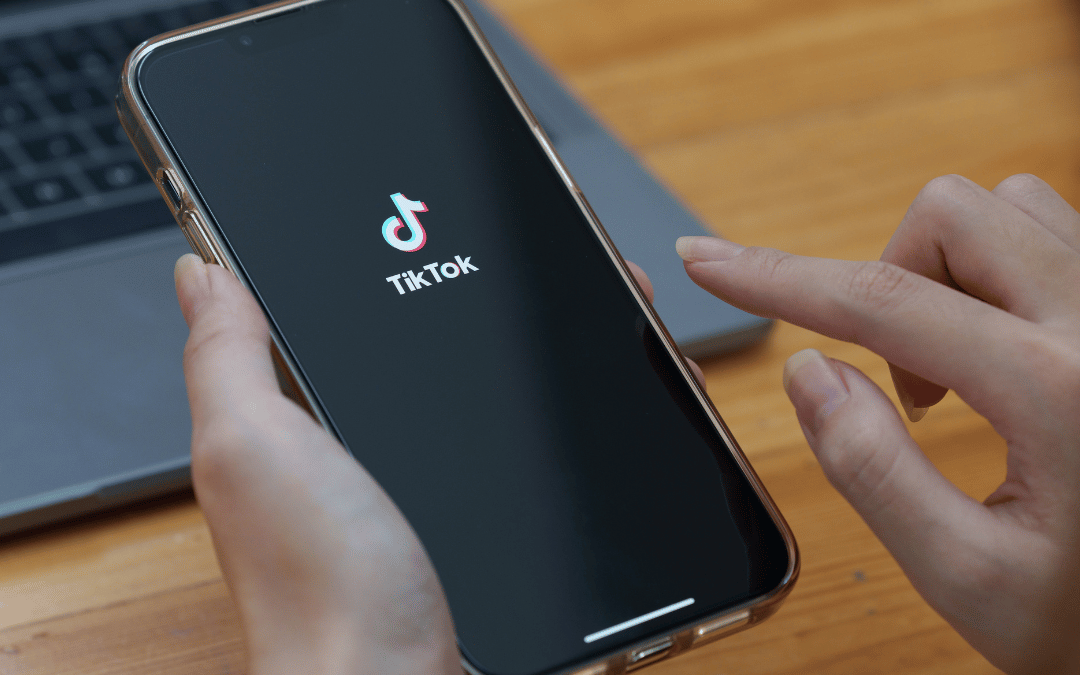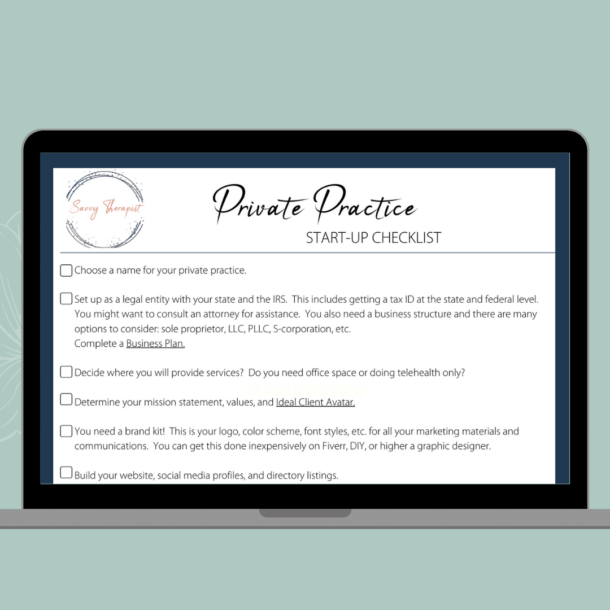TikTok has become a popular social media platform among people of all ages. With its short-form videos and trendy music, it has captured the attention of millions of users.
Mental health therapists have also started to use TikTok as a way to reach out to their clients and to provide educational content to a broader audience.
Many therapists have found themselves growing quickly on the platform, and needing to navigate new territory around ethics and costs/benefits of social media use.
I had started drafting this post before the recent Tiktok controversy concerning certain therapist influencer accounts being called into question for ethical violations.
Now more than ever, it is important to consider the impacts of social responsibility and how it intersects with business and clinical ethics.
In this blog post, I’ll discuss practical considerations for using TikTok as a mental health therapist and entertain the question of whether or not therapists should use TikTok as a marketing tool.
Dos of Using TikTok as a Mental Health Therapist
If you choose to use social media to promote your practice, consider providing valuable tips or education around mental health issues. You can do this in several ways.
Provide Education
One of the best ways to use TikTok as a mental health therapist is to provide education to your audience. You can create short videos that provide tips and advice on various mental health issues such as anxiety, depression, and stress management.
By providing education, you are not only helping your existing clients, but you are also reaching out to a broader audience who may not have access to therapy.
Normalize Mental Health Issues
TikTok can be a powerful tool to help normalize mental health issues. By sharing your own experiences or stories of your clients, you can help reduce the stigma associated with mental health issues. This can encourage more people to seek help when they need it.
Just make sure you are being thoughtful about your professional image and intentional with what you choose to share with the world on social platforms.
Use Humor
Mental health issues can be challenging to discuss, but using humor can make it more accessible and relatable as long as it is used tactfully.
Using humor can also help break the ice and make people feel more comfortable discussing their issues.
Engage with Your Audience
TikTok is all about engagement, and it’s essential to engage with your audience. Respond to comments and messages promptly and provide thoughtful responses.
Engaging with your audience can help build trust and credibility, which is crucial in the mental health field.
Use Hashtags
Hashtags are a powerful tool on TikTok, and they can help you reach a broader audience. Use relevant hashtags such as #mentalhealthawareness, #selfcare, and #anxiety to increase the visibility of your content.
Have a Strategy
Be clear on the outcome or role Tiktok plays in your greater purpose and career goals. Are you looking to have an outlet or start another income stream? In that instance, you might choose not to see therapy clients who find you on Tiktok or use it to market your private practice.
Other therapists are careful to curate content that does market their services to greater audiences. There isn’t a concrete standard to follow as the ethics of mental health professions have failed to keep pace with the development of technology. Thus leaving clinicians without much guidance as these tools become available.
Dont’s of Using TikTok as a Mental Health Therapist
When using Tiktok to market your practice or bring awareness, there are also some things you likely want to avoid so that you can abide by ethical codes.
Avoid Giving Personalized Advice
It’s important to remember that you are not providing therapy on TikTok. While you can provide education and tips, avoid giving personalized advice to your audience.
Providing personalized advice without a proper assessment can be harmful and unethical or open you up to sanctions from licensing boards.
Don’t Oversimplify Mental Health Issues
Mental health issues are complex, and it’s essential to avoid oversimplifying them. Avoid making sweeping statements or providing one-size-fits-all solutions. It’s important to educate viewers on the need to seek professional help when necessary.
There are limitations with addressing mental health on a social media app, and Tiktok is no exception.
Don’t Share Confidential Information
As a mental health therapist, you have a duty to protect your client’s confidentiality. Avoid sharing any confidential information on TikTok or any other social media platform.
Obviously this one would be on the list!
Don’t Misrepresent Yourself
It’s important to be transparent about your qualifications and expertise. Avoid misrepresenting yourself or your credentials to gain followers or popularity on TikTok.
Recent concerns on the TikTok have included conducting live events that look a lot like traditional therapy just to attract views and grow their platform.
Misstating credentials or not being transparent about your licensing status or ability to practice without supervision.
Don’t Use Triggering Content
TikTok can be a fun and entertaining platform, but it can also be triggering for some people. As a mental health therapist, it’s crucial to avoid using triggering content in your videos.
Be mindful of the images and language you use, and always provide a trigger warning when necessary.
As professionals we are often held to a higher standard when it comes to considering the impact of our content and being careful not to cause harm.
Should Mental Health Therapists Use TikTok for Marketing?
The question of whether mental health therapists should use TikTok for marketing is a complex one. While TikTok can be an effective way to reach out to a broader audience and promote your practice, there are significant ethical considerations to keep in mind.
Firstly, it’s essential to remember that marketing on TikTok should be done ethically and with the best interest of your clients in mind. Mental health therapists should not use TikTok solely for marketing purposes but instead, use it as a platform to provide education and support to their audience. Marketing is a secondary benefit to producing quality content for your viewers.
Additionally, mental health therapists should be mindful of their approach to marketing on TikTok. Avoid using clickbait or sensationalizing mental health issues to gain followers or likes. Instead, focus on providing valuable content that educates and supports your audience.
Mental health therapists should also be transparent about their qualifications and expertise when marketing on TikTok. Avoid misrepresenting yourself or your credentials to gain followers or popularity on the platform. Being honest and transparent will help build trust and credibility with your audience.
Finally, mental health therapists should also consider the potential risks of using TikTok for marketing. Social media can be a double-edged sword, and therapists should be prepared to handle any negative comments or feedback that may arise.
Additionally, therapists should be prepared to manage the potential impact on their own mental health when using social media as a marketing tool.
Conclusion
TikTok can be an effective platform for mental health therapists to provide education and support to their audience. By following the dos and don’ts outlined above, therapists can use TikTok ethically and effectively.
When it comes to marketing, therapists should be transparent, provide valuable content, and prioritize their clients’ well-being over marketing goals. With the right approach, TikTok can be a powerful tool for mental health therapists to reach out to a broader audience and promote mental health awareness.
Need more help with your marketing strategy?
Find more resources on the blog or check out my coaching services for therapists.



Recent Comments